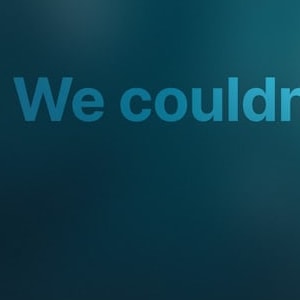ugly duckling: Idiom Meaning and Origin
What does ‘ugly duckling’ mean?
The idiom "ugly duckling" refers to someone or something that is initially perceived as unattractive or of little value, but later develops into something beautiful or successful.

Idiom Explorer
The idiom "up-and-coming" refers to someone or something that is aspiring to success or prominence. It describes individuals or things that are on their way up and have the potential to achieve great things in the future.
The idiom "ugly customer" is used to describe someone who is difficult or troublesome to deal with. It suggests that the person's behavior or actions are unpleasant or challenging to handle.
The idiom "ugly American" refers to an American who portrays negative stereotypes such as arrogance, ignorance, or rudeness when traveling or living abroad.
An idiom widely used to refer to something insignificant or unimportant. It implies that the mentioned object or amount is of little value or significance.
The idiom "sitting duck" refers to a vulnerable or defenseless target that is easily caught or attacked. It implies someone or something that is exposed to danger, without any means of protection or escape.
The idiom "rough around the edges" means that someone or something may appear imperfect or unrefined, but still has potential or qualities that make them interesting or valuable.
An idiom often used to describe a person who is disliked or considered bad, with negative qualities or behavior.
One of the most popular idioms in English is "rotten egg." This phrase describes a person who is considered bad or unpleasant. The idiom originated in the early 19th century and is still commonly used today.
The idiom "pearls before swine" means to offer something valuable or precious to someone who can't appreciate or understand its worth.
The idiom "odd duck" refers to a person who is strange, eccentric, or unconventional compared to others. They stand out in a peculiar way and are often seen as different or unusual.
Surprising transformation
The idiom "ugly duckling" is commonly used in English language and has a well-known meaning. It refers to a person or thing that appears unattractive or unpromising at first, but later proves to be beautiful or successful. The origin of this idiom can be traced back to the popular fairy tale "The Ugly Duckling" written by Hans Christian Andersen in 1843.
In the fairy tale, the story revolves around a little swan, known as the ugly duckling, who is rejected and ridiculed by his peers due to his unattractive appearance. He is constantly compared to the adorable ducklings and even his own mother finds him repulsive. However, as time passes, the ugly duckling matures and eventually transforms into a magnificent swan, realizing his true identity.
The fairy tale demonstrates the journey of the ugly duckling, who starts off as an odd duckling in the eyes of others. Despite facing ridicule and being considered an outsider, the ugly duckling perseveres and grows into a beautiful swan. This transformation reflects the idiom "ugly duckling" and its message of looking beyond initial appearances.
The idiom "ugly duckling" is often used to describe individuals who undergo a similar transformation, either in terms of physical appearance or personal development. It highlights the concept that initial impressions can be deceiving, and that one should not judge others based solely on their outward appearance.
Just like the ugly duckling, who was initially seen as different and unattractive, individuals labeled as "odd ducks" may face similar challenges. The idiom "odd duck" is used to describe someone who is peculiar or eccentric, often standing out from the crowd. These "odd ducks" may possess unique qualities or perspectives that set them apart, but just like the ugly duckling, they have the potential to surprise others with their hidden talents or abilities.
Similarly, the idiom "ugly duckling" can also be related to the concept of being a "lucky duckling." A "lucky duckling" is someone who appears to be fortunate or lucky, even though they may not have had the best start. This idiom reflects the idea that success and good fortune can come to those who persevere and overcome adversity, just like the ugly duckling.
The idiom "ugly duckling" has become deeply ingrained in the English language and is frequently employed in various contexts. It is particularly utilized in discussions about personal growth, social acceptance, and overcoming adversity. Additionally, it is often used in literature, media, and everyday conversations to convey the idea of hidden potential or hidden beauty.
Furthermore, the idiom "ugly duckling" has inspired countless adaptations, parodies, and modern retellings of the original fairy tale. It has become a symbol of hope, resilience, and the power of self-discovery. The recurring popularity and enduring relevance of this idiom attest to its resonance with the human experience.
The idiom "ugly duckling" represents the journey of transformation and the discovery of true worth in the face of initial adversity. It encapsulates the idea that beauty and success can emerge from unexpected places, emphasizing the importance of looking beyond the surface and recognizing the potential within ourselves and others.
Example usage
Examples of how the idiom "ugly duckling" can be used in a sentence:
- The movie portrays the main character as the ugly duckling who later transforms into a beautiful swan.
- She was often teased in school and felt like the ugly duckling among her peers.
- The old house on the street was seen as the ugly duckling in the neighborhood until it was renovated.
The idiom "ugly duckling" is used to describe someone or something that may initially appear unattractive or inferior, but has the potential to develop into something incredible or remarkable.
More "Metaphor" idioms

